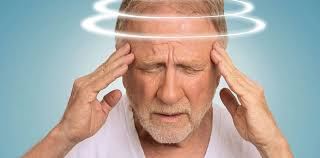Treatment of Dizziness!
Treatment of Dizziness
Homeopathic Treatment of Dizziness
Acupuncture & Acupressure Treatment of Dizziness
Psychotherapy Treatment of Dizziness
Conventional / Allopathic Treatment of Dizziness
Surgical Treatment of Dizziness
Dietary & Herbal Treatment of Dizziness
Other Treatment of Dizziness
What is Dizziness
Symptoms of Dizziness
Causes of Dizziness
Risk factors of Dizziness
Complications of Dizziness
Lab Investigations and Diagnosis of Dizziness
Precautions & Prevention of Dizziness
Treatment of Dizziness
Homeopathic Treatment of Dizziness
It helps not only in controlling the intensity and frequency of the attacks of dizziness. It improves the general immunity and vitality of the patient. Some of the homeopathic remedies for dizziness are:
Conium
Ambra grisea
Iodine
Ferrum metallicum
Bromine
Aconite
Nux vomica
Pulsatilla
Phosphorous
Acupuncture & Acupressure Treatment of Dizziness
Acupressure points on the head, scalp and shoulders are useful in treating dizziness. It stimulates the points and rebalances the flow of qi or life force, in the body to relieve symptoms of dizziness.
Conventional / Allopathic Treatment of Dizziness
A variety of allopathic medications are used to treat dizziness such as meclizine (Antivert, Bonine, and Vetrol). Anti-nausea medications are also prescribed such as promethazane (Phenergan) and anti-histamines (Benadryl, Dramamine).
Surgical Treatment of Dizziness
Surgery is usually the last step in the treatment of dizziness, only used after therapy and medications have failed.
Dietary & Herbal Treatment of Dizziness
Limit sodium intake
Eat foods rich in vitamins A, C, and E
Avoid fried foods
What is Dizziness?
Dizziness means feeling lightheaded or off balance. Dizziness that creates the sense that you or your surroundings are spinning or moving is called vertigo.
Symptoms of Dizziness
Chest pain or pressure
Difficulty hearing
Headache
Abdominal pain
Nasal congestion
Nausea
Numbness or weakness of the extremities
Loss of balance
sweating
Vision problems
Causes of Dizziness
Fatigue
Hypoglycemia
Anxiety
Neurologic conditions, such as multiple sclerosis, Parkinson’s disease, and epilepsy
Complications of Dizziness
Accident
Diagnosis of Dizziness
Diagnosis of Dizziness involves the following tests:
Eye movement testing
Posturography testing
Rotary-chair testing
MRI
Precautions & Prevention of Dizziness
Sit or lie down immediately when you feel dizzy
Avoid using caffeine, alcohol and tobacco
Avoid driving a car or operating heavy machinery if you experience frequent dizziness
Walk with a cane for stability



+1.svg)
